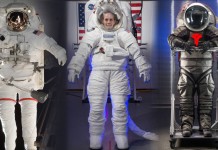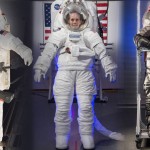Friday, January 8, 2016 at 8:00 PM
Abstract
 At the beginning of the 20th century Einstein changed the way we think about Time. Near the end of the 20th century scientists learned how to use laser light to cool a gas of atoms to temperatures millions of times lower than anything else in the universe.
At the beginning of the 20th century Einstein changed the way we think about Time. Near the end of the 20th century scientists learned how to use laser light to cool a gas of atoms to temperatures millions of times lower than anything else in the universe. Now, in the 21st century, Einstein’s thinking, ultracold atoms, and new uses of light are shaping one of the key scientific and technological wonders of contemporary life: atomic clocks, the best timekeepers ever made. Such super-accurate clocks are essential to industry, commerce, and science: they are the heart of the Global Positioning System (GPS), which guides cars, airplanes, and hikers to their destinations. Today, atoms with temperatures near absolute zero, held by lasers, and ticking at the frequency of light, keep time to within a second in the age of the universe, about 1 second in 435,000,000,000,000,000.
Now, in the 21st century, Einstein’s thinking, ultracold atoms, and new uses of light are shaping one of the key scientific and technological wonders of contemporary life: atomic clocks, the best timekeepers ever made. Such super-accurate clocks are essential to industry, commerce, and science: they are the heart of the Global Positioning System (GPS), which guides cars, airplanes, and hikers to their destinations. Today, atoms with temperatures near absolute zero, held by lasers, and ticking at the frequency of light, keep time to within a second in the age of the universe, about 1 second in 435,000,000,000,000,000.  This lecture will be a lively, multimedia presentation, including experimental demonstrations and down-to-earth explanations, of some of the science of laser trapping, ultra-cold atoms, fantastically accurate time keeping and other aspects of today’s most exciting developments in the science of light and quanta.
This lecture will be a lively, multimedia presentation, including experimental demonstrations and down-to-earth explanations, of some of the science of laser trapping, ultra-cold atoms, fantastically accurate time keeping and other aspects of today’s most exciting developments in the science of light and quanta.
Speaker

Michael G. Marmot is Professor of Epidemiology and Public Health and Director of the Institute of Health Equity at University College London, and heis President of the World Medical Association and President of the British Lung Foundation. He has been a UCL faculty member throughout his career, except for a brief attachment to the Medical Council just after completing his PhD.
Michael has led research groups on health inequalities for over 35 years, and he has long been a leading figure working at the highest levels of policy and governance to bring adequate medical care to everyone, regardless of status, location and income, not only in the UK but throughout the world.
He is a Principal Investigator of the Whitehall II Studies of British Civil Servants, investigating explanations for the striking inverse social gradient in morbidity and mortality. He leads the English Longitudinal Study of Ageing (ELSA). And he is involved in several international research efforts on the social determinants of health.
Previously he served as Chair of the Commission on Social Determinants of Health of the World Health Organization, led the British Government’s “Strategic Review of Health Inequalities in England Post 2010” and WHO Euro’s European Review of Social Determinants of Health and the Health Divide. He served as Chair of theBreast Screening Review for the NHS National Cancer Action Team and served on The Lancet-University of Oslo Commission on Global Governance for Health. He also served as a member of the Royal Commission on Environmental Pollution.
Among many honors, he was knighted by Queen Elizabeth for services to epidemiology and the understanding of health inequalities. He is a past President of the British Medical Association and a past Vice President of the Academia Europaea. He has been awarded the Balzan Prize for Epidemiology and the William B. Graham Prize for Health Services Research, delivered the Harveian Oration and has been awarded a Harvard Lowns Professorship.
He is a Fellow of the Academy of Medical Sciences, an Honorary Fellow of the British Academy, an Honorary Fellow of the Faculty of Public Health of the Royal College of Physicians, and Foreign Associate Member of the Institute of Medicine.
Michael earned a BSc in Medicine and an MBBS in Clinical Medicine and Surgery at the University of Sydney and an MPH and PhD in Epidemiology at UC-Berkeley. He also has been awarded honorary doctorates from 14 universities worldwide.
Additional information on Professor Marmot and his work is available through the IHE website.















